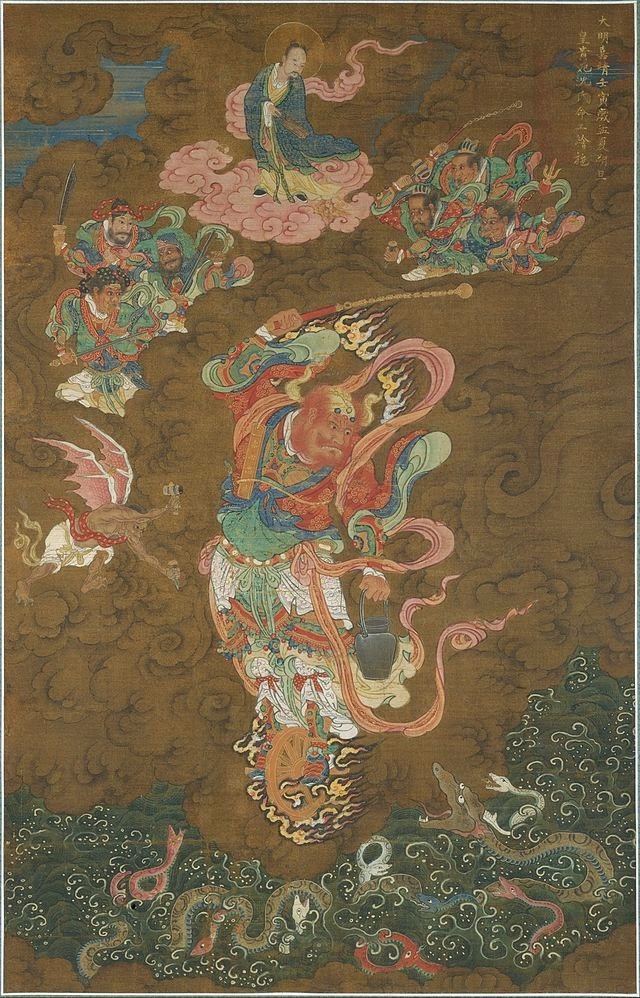 About thirteen years ago, one of my players looked me dead in the eye after the close of a campaign that saw the world plunged into hell-fire and dragons and said "I'm sensing a pattern here, every campaign builds to some earth shattering cataclysm that we are in part responsible for". He was right, I had developed a strange habit of culminating campaigns in apocalyptic scenarios, usually triggered by something the players unwittingly released or failed to stop. It was a bad habit, but not my worst habit. I think part of the problem was I wanted the gods to play an active role in the setting but just had trouble using restraint. I was in too much of a rush, which is contrary to how immortal gods would approach the world. They have eternity so it makes much more sense to play gods as long term planners, not Rambo on steroids itching for final conflict.
About thirteen years ago, one of my players looked me dead in the eye after the close of a campaign that saw the world plunged into hell-fire and dragons and said "I'm sensing a pattern here, every campaign builds to some earth shattering cataclysm that we are in part responsible for". He was right, I had developed a strange habit of culminating campaigns in apocalyptic scenarios, usually triggered by something the players unwittingly released or failed to stop. It was a bad habit, but not my worst habit. I think part of the problem was I wanted the gods to play an active role in the setting but just had trouble using restraint. I was in too much of a rush, which is contrary to how immortal gods would approach the world. They have eternity so it makes much more sense to play gods as long term planners, not Rambo on steroids itching for final conflict. Now I play my gods a bit differently. This is always highly setting dependent of course, but my feeling is if the gods are real and can interact with the world, that should be visible to some degree to the people who exist there. In the past, this meant significant divine intervention all the time. Now I realize the gods can be more subtle and patient. They don't mind planting a seed and waiting four hundred years for it to grow.
For example, in my Sertorius campaign, Ramos is beginning to grow irritated with some of the religious communities devoted to him. They've deviated from their covenants with him, twisting his words to suit their purposes. Ramos most certainly could take aggressive action, raining storms and destruction (he is kind of a jerk). Instead he has planted some seeds. These are things the party in my current campaign may or may not come across. They are likely to hear rumors that point to these seeds, but there are always rumors and the seeds themselves are not necessarily all that obvious. Seeds can be anything from a vague vision received by a lonely hermit in the north to the arrival of a new prophet who attracts a small following.
%2C_dated_1542.jpg)
In two or three hundred years, maybe some of these seeds will grow into something significant. The prophet's followers could become a new religion or a sect of an existing faith, the hermit's message may come to the attention of an earthly ruler who tries to revive the old ways of the Church of Ramos and one of his descendants eventually spreads this reformation through conquest.
War between the gods themselves is another restraining force to consider. Generally I think most of them would avoid it, except when necessary. It is one thing to stomp mortals who can do little or no harm to you, but quite another thing to welcome a fight with an equal. Any time a god steps in, there is that possibility that the action messes with another gods plans. So this is even more reason to work slowly with some plausible deniability. When there are many gods, conflict between them is likely.
My gods are still present and palpable. Players who do well on Ritual Rolls may attract the notice of the gods or have visions. The gods may directly intervene or send servants to intervene on their behalf when the need arises. But they don't feel the need to act in every instance where their interests are challenged. For me it is useful to think of each gods long term goals. Do they really need to risk taking direct action and possibly come into conflict with another god by smiting the people who started worshipping that lich lord?
Still, direct interventions and even end-of-the-world scenarios can arise, just not every damn campaign.



No comments:
Post a Comment